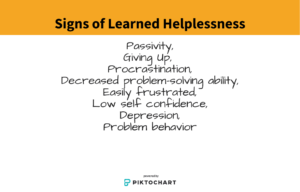What the End of Net Neutrality Would Mean for Education

This week, the FCC will hold a vote on what is likely to be one of the most important issues of 2017: net neutrality. Net neutrality is a legal precedence instated under President Barack Obama that establishes broadband access as a public utility, meaning that internet service providers (ISPs) like Comcast, AT&T and Verizon have to treat all data equally on their networks.
In practice, this means that they must allow data from services like Netflix and Facebook to travel at the same speed as data from services like Wikipedia and the New York Times. Removing net neutrality would allow ISPs to slow or block data from websites of their choosing, ostensibly to require companies or consumers to pay more to access websites like Netflix that tend to consume more data.
The FCC plans to vote on removing net neutrality on December 14. Sound boring? The potential ramifications are anything but.
What Happens if Net Neutrality Ends
The main reason that the FCC Chairman says he is considering this controversial move (which is supported by ISPs and deregulation proponents, and unpopular with pretty much everyone else) is to spur investment and innovation (see his partisanly-toned statement here) in the telecommunication industry.
Critics of the move cite a number of concerns (often in apocalyptic terms), including the end of media freedom, the death of the internet as medium for exchange of ideas, and stifled innovations across the board:
“Moreover, ISPs [would be able to] keep an eye out for breakthrough online services (the Amazons and Spotifies of tomorrow) and throttle them into oblivion while simultaneously launching their own copycat versions of those services. If you think that Twitter’s treatment of Meerkat was unfair, you haven’t seen anything yet.”
The ACLU is in favor of net neutrality due to its implications for free speech, and TechCrunch reports that the FCC is currently making other moves that will disproportionately harm minority and socio-economically disadvantaged communities, as well.
It’s hard to say what will actually happen if net neutrality is removed, as no other highly developed country has done this before, but Wired reports that net neutrality does not in practice hinder investment by Telecom companies, and a quick glance at Comcast’s growth over the last five years would seem to discredit the notion that net neutrality has done them undue harm.
 While Fox News takes the FCC chairman at his word that the change will spur innovation, we think that major ISPs have exhibited anti-competitive behavior in the past frequently enough to lend weight to concerns that telecom giants may use this freedom unfairly. Moreover, the fact that telecom companies have spent over half of a billion dollars lobbying for the removal of net neutrality in the past nine years and are just now seeing results seems to indicate that the move will not benefit most Americans.
While Fox News takes the FCC chairman at his word that the change will spur innovation, we think that major ISPs have exhibited anti-competitive behavior in the past frequently enough to lend weight to concerns that telecom giants may use this freedom unfairly. Moreover, the fact that telecom companies have spent over half of a billion dollars lobbying for the removal of net neutrality in the past nine years and are just now seeing results seems to indicate that the move will not benefit most Americans.
While some concerns may be overblown, we believe that losing net neutrality would be a “net negative” change overall.
What It Could Mean for Education
It’s hard to imagine that ISPs would block access to educational resources, or require districts to pay more for quicker access, as any such move would be unpopular among consumers. However, given the ability to control what consumers read and see, the potential remains that, over time, ISPs would implement policies causing districts to see costs rise to access the data they need, potentially harming efforts to equitably provide high-quality learning to all students.
Our mission at Getting Smart is to extend equity and excellence in learning, so this is one of our biggest concerns, but there are other potential implications for education that should be taken into account as well.
Most notably, we have already seen innovations slow under the few EdTech monoliths that dominate the industry. Without net neutrality, there is a good chance that these powers will only become more entrenched in their positions, further hindering the development of the tech we need to improve learning for students everywhere. Farhad Manjoo put it succinctly in a New York Times Op-Ed:
“When the rules go, the internet will still work, but it will look like and feel like something else altogether — a network in which business development deals, rather than innovation, determine what you experience, a network that feels much more like cable TV than the technological Wild West that gave you Napster and Netflix.
If this sounds alarmist, consider that the state of digital competition is already pretty sorry. As I’ve argued regularly, much of the tech industry is at risk of getting swallowed by giants. Today’s internet is lousy with gatekeepers, tollbooths and monopolists.”
In Conclusion
The loss of net neutrality will probably hinder much-needed innovation, and it will probably be bad for free speech. While none of the worst effects of losing net neutrality will be felt immediately, it is not hard to imagine that this shift in a key part of our everyday lives could be the first major turn toward a less free, less open and less competitive society.
The repeal of net neutrality is not something that anybody is likely to be able to stop at this time (though the FCC is still accepting comments), but the current bill only assures non-regulation of broadband through 2020. We will be keeping an eye on overall changes in the internet in preparation for the next battle, and we encourage you to do the same.
For more, see:
- Capitalism That Works for Everyone
- 12 New Rules: Accelerated Learning for an Exponential World
- Chinese Scholars Advocate for Well-Rounded People and Lifelong Learning
Stay in-the-know with all things EdTech and innovations in learning by signing up to receive the weekly Smart Update.







Tom
Gotta hand it to TechCrunch for calling it like it is: a shitty shitty day for Internet users https://techcrunch.com/video/fcc-kills-net-neutrality-crunch-report/5a33118c92fdde288d2e8794/
Replies
Erik Day
I couldn't agree more, Tom